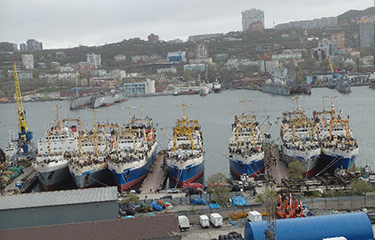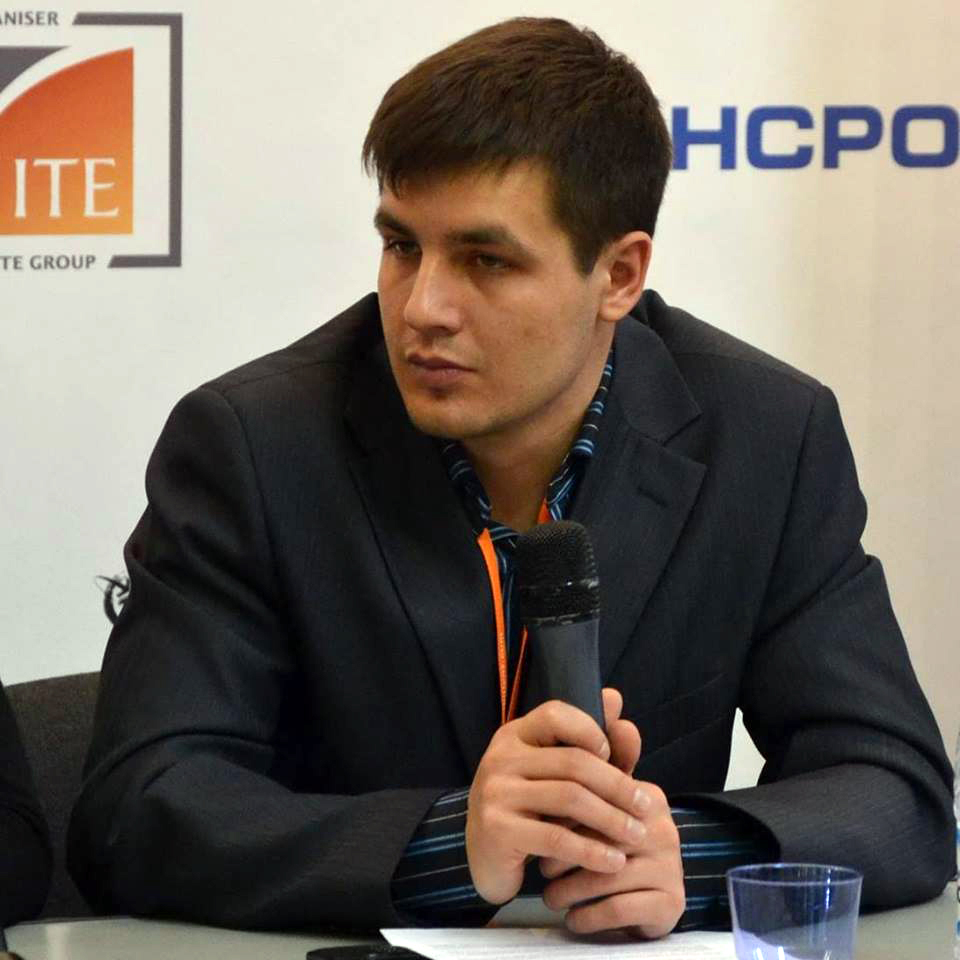Russian seafood industry at crossroads as large companies seek market control

The Russian seafood industry is at a crossroads as large companies are beginning to invest more money and seek more quotas from the country’s government, while smaller companies oppose big changes in how quotas and the market are configured.
Russia’s seafood industry has had a complicated history and faced rapid a rapid deterioration of its fishing and processing capacities in the early 2010s. An economic crisis in the 1990s, and a lack of stable state policy, meant most companies didn’t have the funds to modernize.
In 2014, the need for more modern fleets and plants grew more urgent when Russia imposed a ban on seafood imports from the European Union, U.S., Canada, Australia, and Norway. At the same time, the country expelled foreign companies from Russian waters by limited the share in stocks of Russian fisheries.
By ousting foreign seafood from markets and foreign companies from Russian waters, the government created more favorable conditions for domestic players. With high demand for Russian seafood abroad, and stable demand domestically, companies had promising market forces in their favor.
In 2015, Russian President Vladimir Putin approved the idea of allocating quotas for sought-after species to fisheries ready to invest in new fleets or plants. The first investment quota program was launched in 2017, with a second planned to follow in 2022.
Favorable market conditions, coupled with the investment quota program, have created incentives for investors. PortNews Development Director Nadezhda Malysheva told SeafoodSource that the industry is likely to see increased merger and acquisition activity.
“The Russian seafood industry is getting increasingly attractive for the investors. The growth of global demand for seafood is lagging behind the supply, while Russian fisheries with a stable catch of 5 million metric tons (MT) a year have a lot to offer,” she said. “Companies from outside the industry will come, and companies inside the industry will continue to buy their competitors.”
Some investors are speculated to be the source of proposed changes to the industry – changes favorable to entities with the money to capitalize on them. The first instance came in 2017 when a “group of investors,” the identities of which are unknown, approached Putin with a proposal to create government auctions for crab quotas that previously were distributed on a prior catch principle.
The proposal caused outrage in the industry, with rumors that the investors pushing for the auction were owners of the Russian Fishery Company – rumors the company denied. In the end the government reached a compromise to sell only half of the quotas – a move which resulted in the emergence of a new “crab king” as some companies won big.
Regardless of the impetus for the original quota auction idea, RFC Owner Gleb Frank then proposed a new vision of how to reform the seafood industry and push for more active renovation of the country’s fishing fleets. He proposed the redistribution of quotas to investors prepared to pay for them through auctions similar to the crab auctions.
Frank, the son-in-law of Russian business tycoon Gennady Timchenko – reportedly close to the Kremlin – was believed to have access to enough money for such investments and, as a consequence, more quotas. His bold ideas, opponents responded, would create unequal competition.
As a result of Frank’s proposals, the Pollock Catchers Association (PCA) tried to oust RFC’s companies and thus strip the fishery of a Marine Stewardship Council (MSC) certificate. RFC said it would seek its own MSC certificate, but soon regained its certification and PCA membership.
In 2021, the Fishery Fleet Owners Association also began seeking similar proposals to Frank’s, asking the government to distribute more quota to companies ready to make big investments in the sector. In a letter Association President Alexey Osintsev sent to Russia’s Vice Premier Viktoria Abramchenko in October, the association proposed measures similar to those made by RFC regarding investment quotas for vessels and processing plants constructed under the program.
In December, Osintev sent a letter to Russian Minister of Agriculture Dmitry Patrushev saying quota auctions should be expanded for Far Eastern shrimp, a highly valuable species. He also proposed a limit on the service life of fishing vessels, an idea previously voiced by Frank. The Fishery Fleet Owners Association largely consists of companies affiliated in some way with RFC.
Frank’s proposals were supported by a new ally in late 2021, as Vitaly Orlov, owner of Norebo, one of Russia’s largest fishing companies, rolled out his own ideas for transforming the seafood industry. Orlov sent a letter to Abramchenko with multiple drastic proposals, including the allocation of investment quotas for only new ships, and limiting the service life of fishing vessels by 15 to 35 years depending on the tonnage with requirements to replace a vessel within 10 years after it reached its ceiling age. Orlov also proposed the government impose higher taxes on the production of seafood products with low added value to incentivize companies to manufacture higher value-added seafood products.
Even though Orlov suggested the measures be taken as of 1 January 2033, it sparked outrage across the industry – repeating the reaction to the RFC’s proposals. Events that followed nearly mirrored what had happened to RFC, with industry trade organizations erupting with angry comments accusing Norebo of trying to monopolize the market.
“Norebo’s proposals are directed not at the development of the industry, but at further monopolization by big companies,” Arkhangelsk Region Fisheries Union Chair Andrey Zaika told Russian news agency Regnum. “Norebo is a powerful company, its managers are quite aware of the consequences of their proposals. They want small and medium-sized companies to leave the market.”
On 30 November, the executive board of the All-Russian Association of Fishing Industry (VARPE), the most influential industry trade organization in the Russian seafood sector, decided to exclude all the companies affiliated with Norebo. In an official statement, VARPE said that Norebo’s proposals aim to create favorable conditions for a limited number of big companies, and will do harm to the interests other companies.
On 1 December, Norebo claimed on its website that the company’s subsidiaries will voluntarily leave the organization. A few days later, Norebo announced it will seek an MSC certification on its own, though there was no decision to oust it from PCA.
RFC supported Orlov’s ideas, business paper Kommersant reported. Some experts even speculated that Norebo may join the Fishery Fleet Owners Association, as the company and the trade organization are pursuing almost the same goals. However, Norebo denied the speculation, with Norebo Deputy CEO Sergey Sennikov telling Kommersant that the company is well-known in the market and capable of reaching out to decision-makers directly.
The pressure from large companies has further divided the Russian fishing sector into two factions – large companies versus everyone else.
The shift wasn’t entirely sudden. In 2019, Orlov told Kommersant he expected more merger and acquisition activity in the industry, as “there will always be space for consolidation.” Norebo itself was active with new acquisitions in 2021. Other companies like Gidrostroy and Nadhodka Active Marine Base also made big deals.
“The consolidation will lead to more funds available for renovation which the industry badly needs, so investments in new ship and plant equipment will increase over the years to come,” Malysheva said. “The industry is likely to become more financially transparent as some fisheries may conduct an initial public offering.”
Outside investment has also increased in the industry. Vladimir Yevtushenkov, owner of investment company AFK Systema, purchased a 49-percent stake in Zarya, a Kamchatka-based company involved in Russia’s salmon fishing industry. Just a few months later, business journal Vedomosti reported, citing anonymous sources, that he was in talks to purchase a stake in Vityaz-Avto, another seafood company. Sergey Kopytov, a spokesperson for AFK Systema, commented that the corporation explores various ways of investing, but didn’t deny the negotiations.
Vityaz-Avto is one of the largest fishing companies in Russia’s Far East, harvesting a variety of species including pollock, humpback salmon, and sockeye salmon. In 2018, the company finished a new processing plant, built under the first investment quotas program. Vityaz-Avto’s net profit in 2020 was RUB 1.08 billion (USD 14.55 million, EUR 12.88 million).
The launch of the new investment quota program in 2022 will likely accelerate trends and consolidation, as more investors seek more assets and quotas through purchasing power.
Photo courtesy of Russian Fishery Company






Share